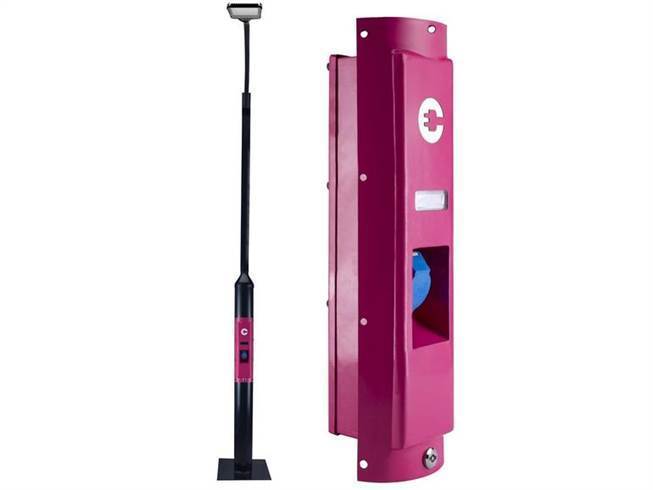By Reuters Staff 2 Min Read FILE PHOTO: A general view shows the General Motors assembly plant in Ramos Arizpe, in Coahuila state, Mexico February 11, 2021. REUTERS/Daniel Becerril (Reuters) – General Motors Co is looking to build a second battery factory in the United States with South Korean joint-venture partner LG Chem Ltd, the… Continue reading GM in talks to build second U.S. battery plant with LG Chem in Tennessee
Tag: Electric vehicles
UK car industry reports worst February sales since 1959
The car industry has had its worst February for sales since 1959 as dealerships across the UK remained closed through national lockdowns. British consumers bought only 51,300 cars in the month, a 35.5% year-on-year decline, according to the Society of Motor Manufacturers and Traders (SMMT). The lobby group also cut its new car sales forecast… Continue reading UK car industry reports worst February sales since 1959
Magna Leverages Cloud Connectivity and Advanced E-Mobility Innovations to Decrease Emissions and Increase Range
Magna EtelligentEco Magna EtelligentEco connected PHEV Magna EtelligentEco connected PHEV Magna EtelligentReach Magna EtelligentReach next gen AWD eDrive Magna EtelligentReach next gen AWD eDrive ARJEPLOG, Sweden, March 04, 2021 (GLOBE NEWSWIRE) — Magna’s roadmap to e-mobility now includes the company’s all-new connected PHEV drivetrain and next gen battery electric drive systems. Debuting today, both systems… Continue reading Magna Leverages Cloud Connectivity and Advanced E-Mobility Innovations to Decrease Emissions and Increase Range
Should You Invest in the First Trust NASDAQ Clean Edge Smart Grid Infrastructure ETF (GRID)?
The First Trust NASDAQ Clean Edge Smart Grid Infrastructure ETF (GRID) was launched on 11/16/2009, and is a passively managed exchange traded fund designed to offer broad exposure to the Utilities – Infrastructure segment of the equity market. An increasingly popular option among retail and institutional investors, passively managed ETFs offer low costs, transparency, flexibility,… Continue reading Should You Invest in the First Trust NASDAQ Clean Edge Smart Grid Infrastructure ETF (GRID)?
‘No iPhone Lightning port would mean binning thousands of dollars of accessories’
If you thought people loved the iPhone’s headphone jack, it has nothing on how fervent people are about the Lightning port. Reacting to continued reports that the 2021 (or possibly 2022 iPhone) will ship without a Lightning port, the majority of readers who got in touch with me to share their thoughts thought it was… Continue reading ‘No iPhone Lightning port would mean binning thousands of dollars of accessories’
Cogos partners Altigreen to deploy 1,000 EVs in its fleet
Cogos, an AI-led logistics platform for intra-city logistics, has announced its partnership with Altigreen for deploying 1,000 EVs in its fleet. As part of the partnership Cogos will initially deploy EVs across all metros in India including Bangalore, New Delhi, Mumbai, Pune, Hyderabad, and Kolkata, before expanding to Tier 1 and 2 cities. It plans to derive… Continue reading Cogos partners Altigreen to deploy 1,000 EVs in its fleet
Magenta, HPCL set up streetlamp-integrated EV chargers in Mumbai and Delhi
Mumbai-based EV charging solutions company Magenta Power and Hindustan Petroleum Corporation (HPCL) have inaugurated ‘ChargeGrid Flare’, a streetlamp integrated electric vehicle charger at HPCL Bandra Kurla Complex outlet in Mumbai and Nitimarg T&E outlet in Delhi. The new class of EV charging points is claimed to be the first in India to incorporate within energy-efficient… Continue reading Magenta, HPCL set up streetlamp-integrated EV chargers in Mumbai and Delhi
/R E P E A T — Media Advisory: Virtual Infrastructure Announcement in London/
Bloomberg Cathie Wood’s ARKK Struggles in Early Trading After 20% Retreat (Bloomberg) — The main fund from Cathie Wood’s Ark Investment Management slipped in pre-market trading on Thursday, as it struggles to stabilize following a 20% drop from its February peak.The $22.9 billion Ark Innovation ETF (ARKK) was down 0.7% as of 8:53 a.m. in… Continue reading /R E P E A T — Media Advisory: Virtual Infrastructure Announcement in London/
General Motors Looks To Add More Juice To Electric Vehicle Transformation
Bloomberg Cathie Wood’s ARKK Struggles in Early Trading After 20% Retreat (Bloomberg) — The main fund from Cathie Wood’s Ark Investment Management slipped in pre-market trading on Thursday, as it struggles to stabilize following a 20% drop from its February peak.The $22.9 billion Ark Innovation ETF (ARKK) was down 0.7% as of 8:53 a.m. in… Continue reading General Motors Looks To Add More Juice To Electric Vehicle Transformation
NIO Stock: Cash Secured Put Update
TipRanks Nio: Selloff After Earnings Could Present An Accumulation Opportunity Nio (NIO) released its much-anticipated earnings results after market hours on March 1, and with the company missing revenue and GAAP EPS estimates, it seems very likely that NIO stock could be headed lower. However, any decline could be viewed as an opportunity to buy… Continue reading NIO Stock: Cash Secured Put Update
